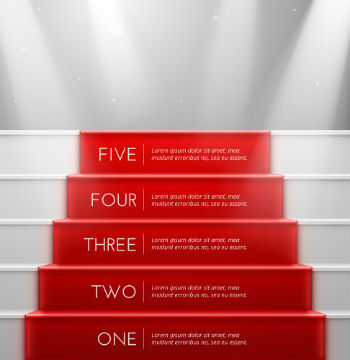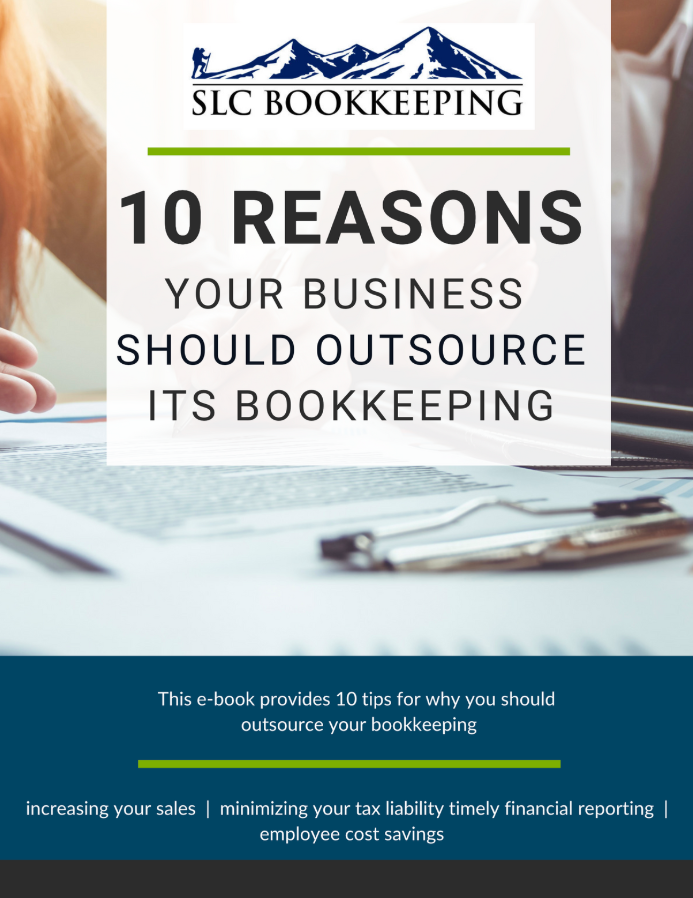5 Stages Of Small Business Bookkeeping Understanding
 Small business owners have many varying degrees of understanding when it comes to their small business bookkeeping. Some business owners are intimidated by their bookkeeping, while others just don't care about it. Many business owners don't understand their bookkeeping or the importance of it until someone shows them. Working with hundreds of small business owners over the years has shown us the varying degrees of understanding that owners go through with their books. Here are five stages of small business bookkeeping understanding that you can use to enhance your understanding of your own business's books.
Small business owners have many varying degrees of understanding when it comes to their small business bookkeeping. Some business owners are intimidated by their bookkeeping, while others just don't care about it. Many business owners don't understand their bookkeeping or the importance of it until someone shows them. Working with hundreds of small business owners over the years has shown us the varying degrees of understanding that owners go through with their books. Here are five stages of small business bookkeeping understanding that you can use to enhance your understanding of your own business's books.
Clueless About Bookkeeping
When most small business owners start out the majority of them are clueless about bookkeeping and accounting. Most of them understand that they need to do bookkeeping for their business, they just don't know why or how to handle the books. Many small business owners have not seen general accounting concepts since college, while others have no exposure to accounting at all. While these types of business owners may seem like a perfect fit for outsourced bookkeeping services, many times they are a hard sell. If they don't have a clue about bookkeeping then they don't see the value in it. Often times these types of business owners don't understand why bookkeeping is important until something bad happens, like an audit.
Worried About Taxes Only
The next stage of bookkeeping understanding is that it needs to be done in order to file taxes. This type of business owner may have shown up at their CPA's office or H&R Block with a shoebox full of receipts. They most likely got hit with a huge bill and now want to use a lower level person to help with preparing the bookkeeping for their CPA. While this is a smart approach this type of owner still doesn't see any value in bookkeeping. They only know that bookkeeping needs to be done in order for taxes to be filed.
Intrigued By Bookkeeping
Another type of business owner that we encounter are those that are intrigued by bookkeeping. Maybe their heard from a fellow business owner how awesome their bookkeeper is and how much it has helped them run their business. Another possibility is they were stuck in the last stage and wondered to themselves if maybe there was more to bookkeeping than taxes. Typically these business owners are late adopters to bookkeeping and might find us towards the end of a fiscal year. We might then clean up their books and show them some reports that actually mean something to them. At this point they are ready to graduate to the next phase.
Using Bookkeeping As A Tool
If people handle their bookkeeping properly or have someone do their bookkeeping correctly for them, they should all end up at this stage. All small businesses should strive to use their bookkeeping as a tool to help them make business decisions and grow. Business owners that hit this stage not only know the importance of bookkeeping; they can't operate without it. They set strict deadlines with their bookkeeper of what they need done and by when. They have a series of financial reports that they look at on a regular basis. They scrutinize their financial reports for accuracy. They use their financial reporting to make adjustments to the way they are operating to keep their business on track with their goals. Business owners that learn to use their bookkeeping as a tool wonder how they ever operated without an accurate bookkeeping system.
Bookkeeping Financial Mastermind
The final stage of bookkeeping understanding is what I call the bookkeeping financial mastermind stage. I will openly admit that we only have a few clients that have reached this level, but not everyone is meant to get here. It takes a special business owner that is very educated and motivated. This is a person that we could offer a high-level job within our organization but they would scoff at the opportunity. Financial masterminds not only understand the importance of using their bookkeeping as a tool, they are a wizard at it. We love working with these types of clients because they run their businesses the right way and both sides learn a lot in that business relationship. Financial masterminds literally run their businesses from their financial statements. They set strict deadlines on updating their financials and don't let excuses get in the way. Not only do financial mastermind types create budgets and forecasts, but they use them and they hold people accountable to them. They manage their financials in percentages, not dollars and profits. Making a profit isn't good enough for these types. Hitting desired percentages in each category is and if they do that they hit their profit goals.
Want to become a financial mastermind? You know what to do.
Photo Credit © Dollar Photo Club / Lonely


Comments